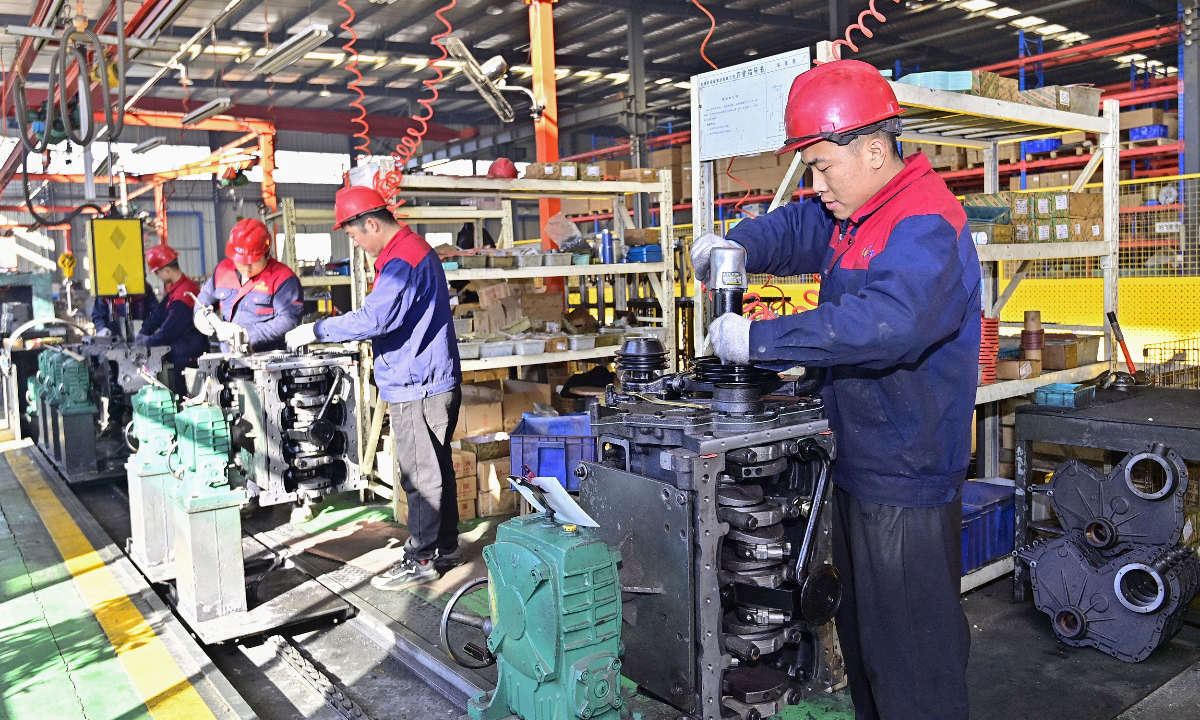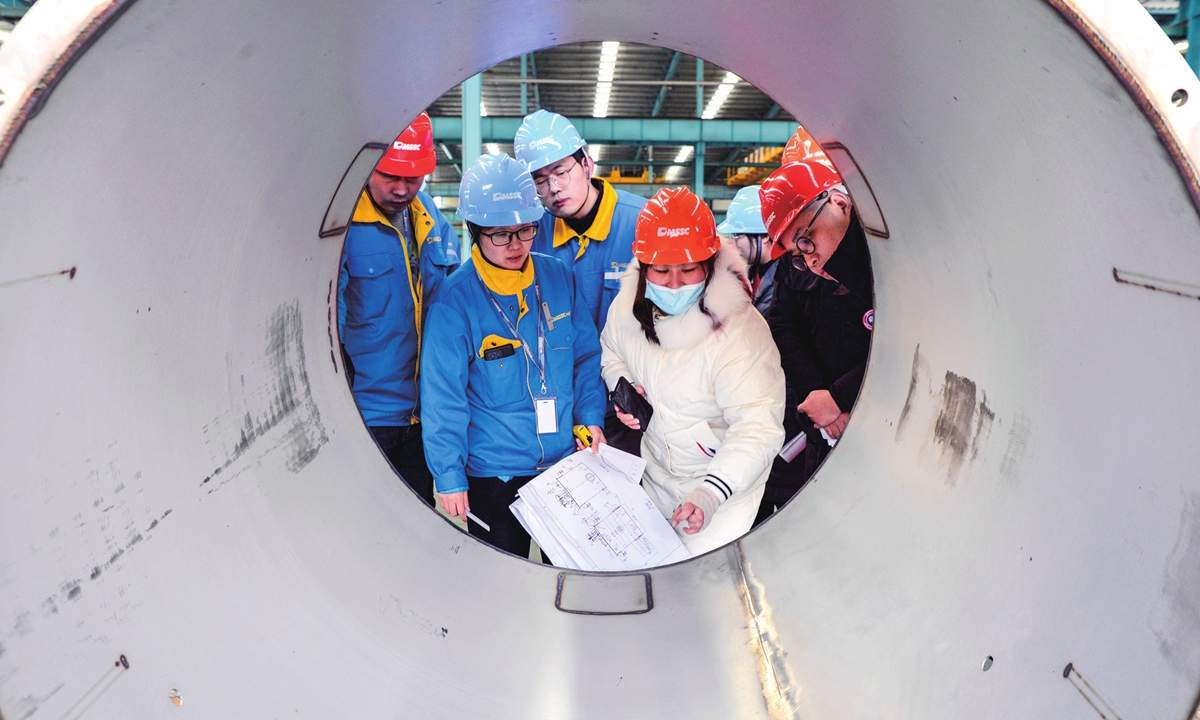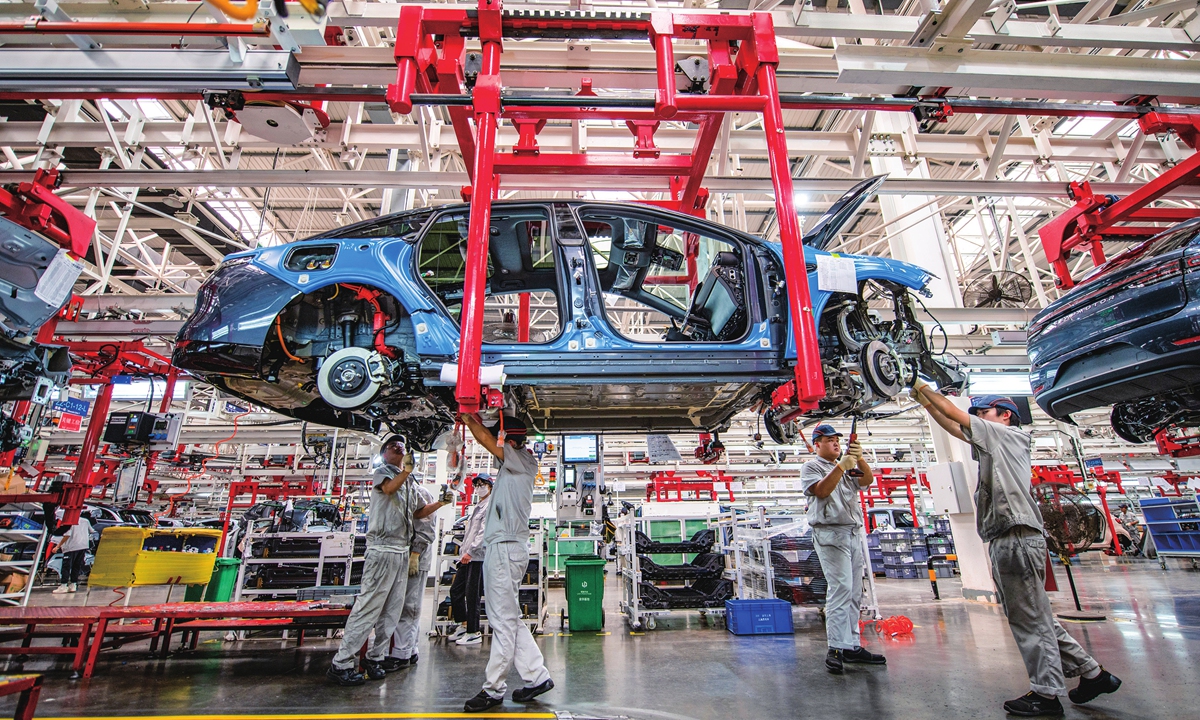
Photo: VCG
China's manufacturing activity remains in contraction territory in December, official data showed on Sunday, reflecting challenges posed by insufficient demand. Analysts believe that as more policies are implemented to boost demand, the situation is expected to improve.
China's manufacturing Purchasing Managers' Index (PMI) stood at 49 in December, down from 49.4 in November, data from National Bureau of Statistics (NBS) showed on Sunday.
A reading below 50 indicates a contraction, while one above 50 indicates expansion.
The slight drop of manufacturing PMI was affected by factors such as the off-season production for several categories of basic raw material industries, indicating a slight decline in the level of economic activity, according to Zhao Qinghe, an NBS official.
Non-manufacturing PMI stood at 50.4 in December, up 0.2 percentage points from November, indicating accelerated expansion, NBS data showed.
From the perspective of market expectations, service industry enterprises remain optimistic about the continued recovery and development of the industry in the near future, according to Zhao.
In breakdown of sub-indexes, the production index came in at 50.2, down 0.5 percentage points compared with the previous month. Manufacturing companies have sustained an expansion in production for seven consecutive months.
The new order index stood at 48.7 in October, a decrease of 0.7 percentage points from the previous month.
The fluctuation in manufacturing PMI data is in line with expectations, but it also highlights the challenge of insufficient demand in the current economic climate, which is clearly impacting the entire industry chain, said Tian Yun, a veteran economist based in Beijing.
Chinese economic policymakers have already recognized the challenges, and with the introduction of policies to expand domestic demand, the stabilization and recovery of domestic demand should improve month by month, Tian said.
The National Development and Reform Commission (NDRC), China's top economic planner, recently stated that it aims to leverage the advantages of a super-large-scale market to boost domestic demand. It vowed to coordinate efforts to expand domestic demand and deepen supply-side structural reforms.
"We should coordinate the expansion of domestic demand and the deepening of supply-side structural reforms, and integrate the two organically," Li Chao, an NDRC spokesperson, said at a press briefing for the key macroeconomic policy priorities in 2024 on December 19.
Global Times


